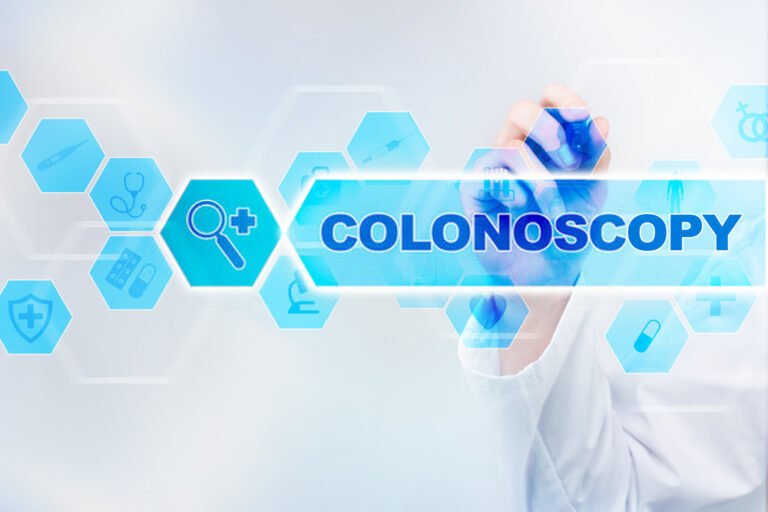WHAT IS COLONOSCOPY?

A colonoscopy is a procedure done to investigate the colon or large intestine. This procedure is done with a long flexible tube with a camera attached at the end of it, called a colonoscope.
Who Needs Colonoscopy?
The most common reasons to perform a colonoscopy include:
- Investigating the colon: Colonoscopy can be done to investigate causes of intestinal issues including abdominal pain, rectal bleeding, chronic constipation and chronic diarrhea.
- Colon cancer screening: People with risk of colon cancer are screened regularly with this procedure. Colonoscopy is one of the common options for colon cancer screening.
- Polyps’ investigation and removal: Using colonoscopy, screening and removal of polyps is also done by doctors. This is done to reduce the risk of colon cancer.
The Colonoscopy Procedure
Before the colonoscopy, it is important to empty the colon. The doctors provide instructions and if required medication for emptying the colon completely. The instructions also include directions on what to eat and drink in the days before the procedure.
An empty colon allows the doctor to see the inside the colon clearly. During the procedure a patient may or may not be given an IV. Local anaesthesia or sedation procedures are performed as per need.
The patient is then asked to lie on the left side, with knees drawn up towards the chest. A small amount of air is used to expand the colon so the doctor can see the colon walls. The colonoscope is then slowly inserted and the doctors examine it carefully on the monitor.
The procedure may take about 15 minutes. If there are polyps which need to be removed, the procedure will take longer.
After the procedure the patient is asked to stay in a recovery room for observation until discharge. A short time feel of some cramping or a sensation of having gas is expected and is considered normal.
Instructions regarding normal diet and medication are provided by the doctor. Patient can resume work after 2 hours.
The result of the colonoscopy performed is looked into to decide upon further action. Follow-ups may be needed depending upon the results of the colonoscopy.
Benefits of Colonoscopies
It is recommended to have colonoscopy periodically after the age of 50. The main benefit of getting a colonoscopy is that it helps detect early signs of cancer and allows removing polyps which over time can become cancerous.
Specifically, people who are at higher risk factors of colon cancer must get the screening done regularly. The risk factors may include family history of polyps or cancer, history of Chron’s disease, ulcerative colitis or other inflammatory bowel disease or if being overweight or a smoker. An early detection of the disease will help in staring the treatment early which helps in improved recovery.
